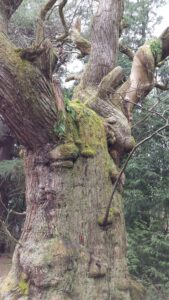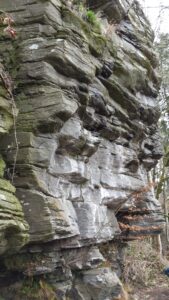“Be Impeccable of Word”
Don Miguel Ruiz
I am reminded of how important language is. Every time we open our mouths and utter words we are sending a message into the ether. Words, like everything in this Creation are energy, and I prefer to project high energy.
However, each language has its limitations and nuances. This was highlighted for me when I read Robin Wall Kimmerer’s book, Braiding Sweetgrass. The English language is very specific in its use of pronouns, as we are noticing more with the LGBTQIA movement. Not everyone fits into the rigid parameters of ‘he’ ‘she’. For many whether something is an object (it, that) or has spirit (who) differs from what is allowed in English language.


Animacy is the belief that everything in creation has spirit. This really means everything: animals of all kinds, plants, and also land features – mountains, rivers, rocks, bays etc. This causes a problem in the English language because it defines things as ‘living’ and ‘non-living’ which basically comes down to ‘human’ and ‘non-human’
My Dad was a ‘Word Whiz’. He attended an English boarding school, so you can imagine he was very particular about how we used words and we would be duly corrected if we spoke incorrectly. So if I spoke about something regarded as inanimate; “look at the mountain! It’s huge!” The word it is the pronoun that should be used and indicates that it is an ‘object’, a ‘thing’ and not alive. I can’t help but think that this rigidity in my language has served to further remove us and our culture further away from not only understanding but feeling the spirit of the Earth.
In contrast, the Ojibwe Native American language as explained by Robin Wall Kimmerer, works entirely differently and honours the life/spirit in everything.
A bay is a noun only if water is dead. When bay is a noun, it is defined by humans, trapped between its shores and contained by the word. But the verb wiikwegamaa—to be a bay—releases the water from bondage and lets it live. “To be a bay” holds the wonder that, for this moment, the living water has decided to shelter itself between these shores, conversing with cedar roots and a flock of baby mergansers. Because it could do otherwise—become a stream or an ocean or a waterfall, and there are verbs for that, too. To be a hill, to be a sandy beach, to be a Saturday, all are possible verbs in a world where everything is alive. Water, land, and even a day, the language a mirror for seeing the animacy of the world, the life that pulses through all things, through pines and nuthatches and mushrooms.
I find this not only to be an interesting point about language but feel that shows how our very way of communicating is limited and flows beneath our awareness. It assumes what is, and doesn’t allow for deviation. In a way, conditioning us to think this way without question.

Leave a Reply